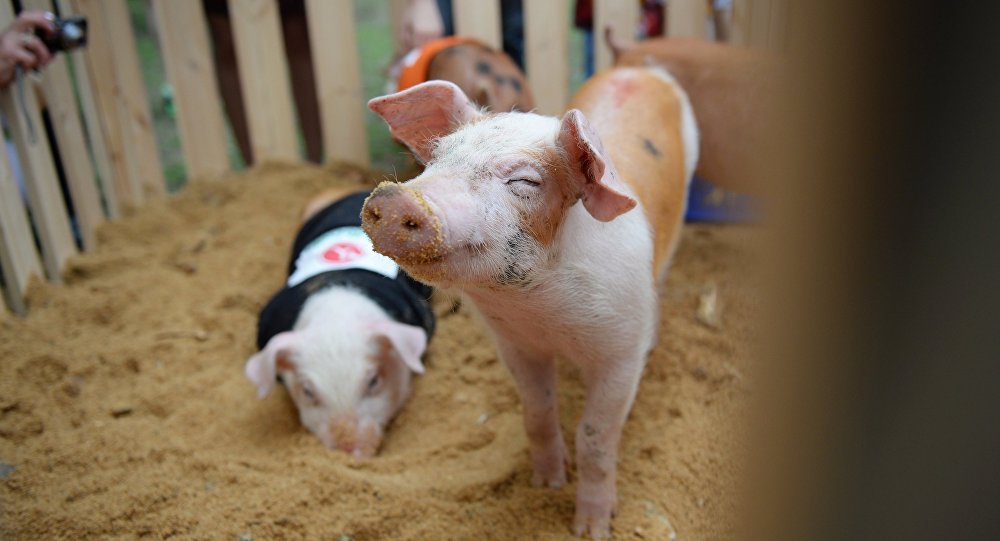Almost 90% of the territory of Latvia is infected with African swine fever

Almost 90% of the territory of Latvia is infected with African swine fever (ASF), Regnum.ru reports with reference to the Latvian Food and Veterinary Service (FVS).
The message distributed by the FVS on July 26 stated that 223 boars were infected in Latvia in the first six months of 2019. In addition, ASF was detected in 52 animals at a pig farm in Dubrovsky Krai.

ASF was found at pig farms in other European countries such as Bulgaria, Romania, Slovakia and Poland.
It is worth noting that ASF is not dangerous for humans, but fatal for pigs. ASF virus can live for several weeks on clothing or a car, and can travel considerable distances. There is no vaccine against ASF. To stop the spread of the disease, farmers are forced to slaughter the whole herd, such measures cause great economic damage to pig farmers.
ASF epidemic periodically breaks out in Latvia, starting in 2014. Then, on the border with Belarus, three wild boars infected with ASF were discovered.
Sputnik Latvia previously reported that an unprecedented outbreak of ASF occurred this year in China. An increase in the incidence was noted in August 2018. ASF began to spread so rapidly that it was beyond the control of the Chinese authorities. About half of the world's pig population is located in China, so after the outbreak of the epidemic, pork prices jumped sharply.
ASF spread across Asia like wildfire, ruining farmers in Vietnam and Cambodia and forcing Thailand, Asia's second-largest pork producer, to declare a “red threat." By mid-summer 2019, ASF cases have become more frequent in Mongolia, North Korea and Hong Kong, and all pigs are tested at the border in South Korea.
The Food and Agriculture Organization of the United Nations (UNFAO) believes that the Chinese authorities are hiding the real number of infected pigs, even despite the fact that this figure already seems prohibitive. In addition, pig farmers do not receive compensation for slaughtered pigs, because of which they may not report outbreaks of the disease, and the prohibition of transporting pigs and pork products across borders can create an uncontrolled black market.
The consequences of ASF are already noticeable outside of Asia: world pork prices rose by almost 40%, which will lead to an increase in imports from Europe and the United States, which, in turn, will cause prices to rise. According to analysts, global pork production could decline by 8%.
SOURCE: lv.sputniknews.ru